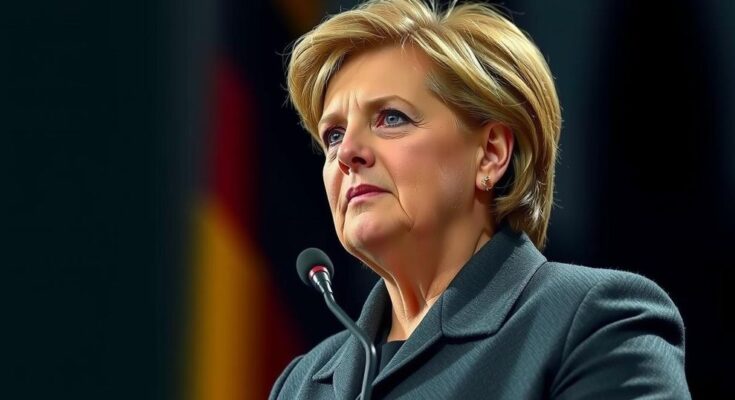Germany’s snap elections on February 23, 2025, will see candidates Olaf Scholz (SPD), Friedrich Merz (CDU), Robert Habeck (Greens), Alice Weidel (AfD), Christian Lindner (FDP), Sahra Wagenknecht (BSW), and Jan van Aken (Left Party) vie for the chancellorship, reflecting the country’s diverse political landscape.
As Germany approaches the snap elections set for February 23, 2025, various political parties have identified their leading candidates for chancellor. Olaf Scholz of the Social Democrats (SPD), despite a long political tenure, is currently facing negative public perception. Friedrich Merz from the Christian Democrats (CDU) represents a more conservative choice, boasting extensive experience in both business and politics. Meanwhile, Robert Habeck of the Greens brings a pragmatic approach, often connecting with the public through relatable communication.
Alice Weidel, co-chair of the far-right Alternative for Germany (AfD), and Christian Lindner of the Free Democrats (FDP), the financial minister known for his media savvy, also stand as significant contenders. In contrast, Sahra Wagenknecht of the Left Party combines populist rhetoric with criticism of mainstream policies. Finally, Jan van Aken, also from the Left Party, focuses on the party’s electoral viability while drawing from a scientific background.
Collectively, these candidates reflect the varied political landscape of Germany, each offering distinct perspectives and policies as the country prepares for its election.
The upcoming chancellor elections in Germany are pivotal, occurring in a context marked by significant political shifts and public sentiment. Each candidate represents different ideological backgrounds and party platforms, contributing to an important election. Understanding the profiles and political histories of these candidates is vital to grasping the broader narrative of German politics, especially in a period characterized by challenges such as economic conditions, immigration policies, and international relations. The candidates’ diverse backgrounds provide insight into their potential governance styles and policy priorities.
In conclusion, the chancellor candidates for the 2025 German elections exemplify the nation’s diverse political spectrum. From Olaf Scholz’s established tenure to the fresh approaches of Robert Habeck and the provocative stance of Alice Weidel, voters face a compelling choice. Each candidate’s background and ideology not only reflect individual party values but also resonate with the current challenges facing Germany. As the election date approaches, citizen awareness and engagement become critical in shaping the future of German leadership.
Original Source: www.dw.com




